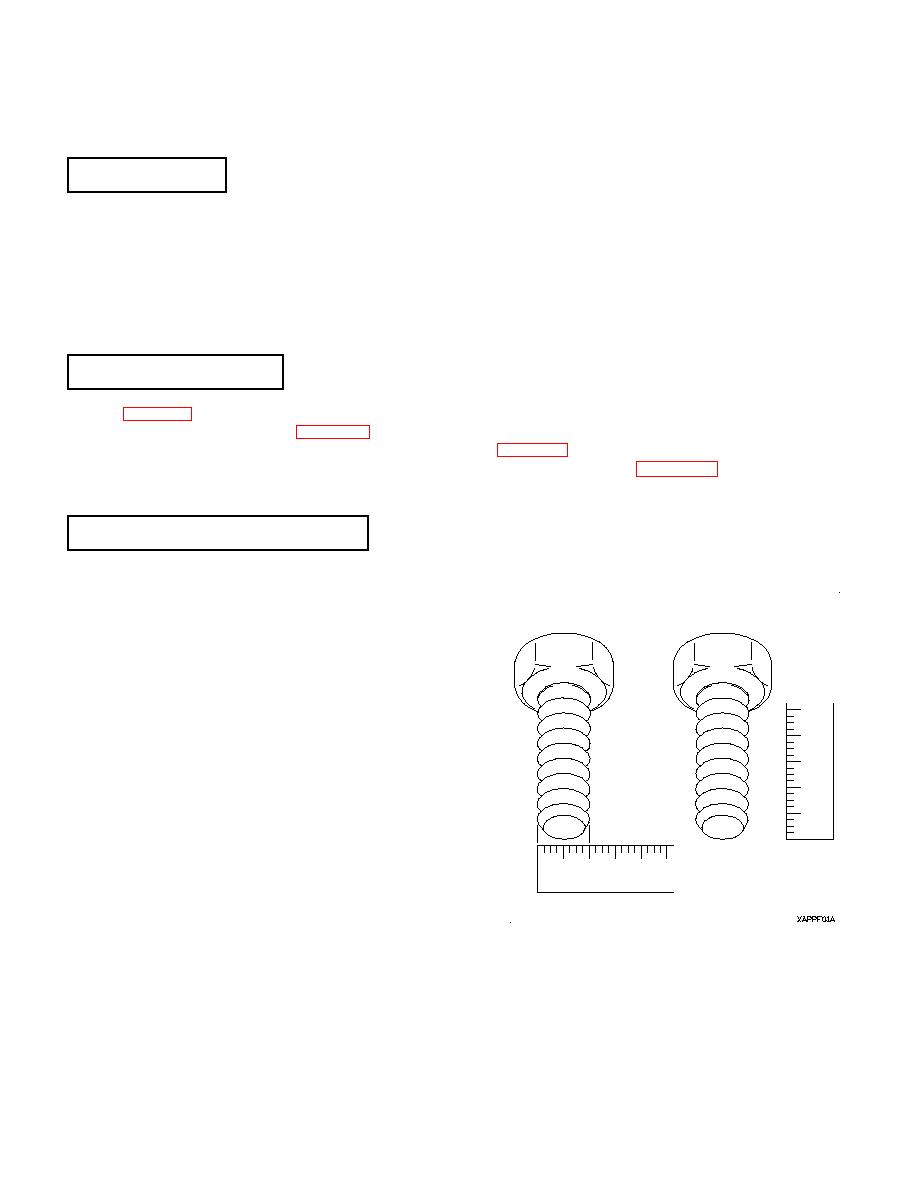
TM 9-2320-366-20-4
TORQUE LIMITS
F-1. GENERAL
This appendix provides general torque limits for screws and nuts used on the vehicle. Special torque limits are shown
in the maintenance procedures for applicable components. Use the general torque limit given in this appendix when
specific torque limits are not given in the maintenance procedure. These general torque limits can not be applied to
screws that retain rubber components. The rubber components will be damaged before the torque limit is reached.
If a special torque limit is not given in the maintenance instructions for a fastener which retains a rubber component,
tighten the screw or nut until it touches metal, then tighten one more turn. Whenever possible, the tightening force
(torque) should be applied to the nut side of the fastener group.
F-2. TORQUE LIMITS
Refer to Table F-1. Torque Limits for SAE and ANSI Fasteners for torque limits on standard (SAE and ANSI) screws
and free spinning nuts. Refer to Table F-2. Torque Limits for SAE and ANSI Prevailing Torque Nuts for torque
limits on standard (SAE and ANSI) self-locking nuts. Refer to Table F-3. Torque Limits for Metric Screws and Free
Spinning Nuts for torque limits on metric screws and free spinning nuts. Refer to Table F-4. Torque Limits for
F-3. USE OF TORQUE TABLES
(1) Measure the diameter of the screw to be installed.
(2) Count the number of threads per inch.
(3) Under the heading DIAMETER look down the column
until the diameter of the screw is found. (There are
usually two lines beginning with the same diameter.)
(4) Under the heading THREADS PER INCH (SAE and
ANSI) or THREAD PITCH (metric), find the number of
threads per inch that matches the number counted in
step (2).
(5) To find the grade of the screw, match the markings on
the head to the correct picture under CAPSCREW HEAD
MARKINGS on the torque table.
(6) Look down the column under the picture found in step
(5) until the torque limit (lb-ft or Nm) for the diameter
and threads per inch (or thread pitch, in the case of
metric fasteners) of the screw are located.


